
A debit card, also known as a check card or bank card, is a payment card that can be used in place of cash to make purchases. The card usually consists of the bank's name, a card number, the cardholder's name, and an expiration date, on either the front or the back. Many of the new cards now have a chip on them, which allows people to use their card by touch (contactless), or by inserting the card and keying in a PIN as with swiping the magnetic stripe. These are similar to a credit card, but unlike a credit card, the money for the purchase must be in the cardholder's bank account at the time of the purchase and is immediately transferred directly from that account to the merchant's account to pay for the purchase.

Electronic funds transfer at point of sale is an electronic payment system involving electronic funds transfers based on the use of payment cards, such as debit or credit cards, at payment terminals located at points of sale. EFTPOS technology was developed during the 1980s.
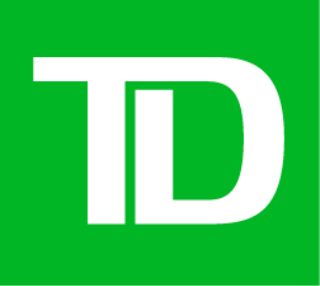
TD Canada Trust, frequently shortened simply to TD, is the commercial banking operation of TD Bank Group in Canada. TD Canada Trust offers a range of financial services and products to more than 10 million Canadian customers through more than 1,100 branches and 2,600 ATMs. It is the second-largest commercial bank in Canada by assets, behind only RBC.

A transaction account, also called a checking account, chequing account, current account, demand deposit account, or share draft account at credit unions, is a deposit account or bank account held at a bank or other financial institution. It is available to the account owner "on demand" and is available for frequent and immediate access by the account owner or to others as the account owner may direct. Access may be in a variety of ways, such as cash withdrawals, use of debit cards, cheques and electronic transfer. In economic terms, the funds held in a transaction account are regarded as liquid funds. In accounting terms, they are considered as cash.
Manulife Bank of Canada is a wholly owned subsidiary of Manulife. As a direct bank, it offers high-interest chequing & savings accounts, credit cards, lines of credit and mortgages, including Manulife One. Since it was established in 1993, Manulife Bank has grown to more than $29 billion in assets and serves customers across Canada. Manulife Bank headquarters are in Waterloo, Ontario.
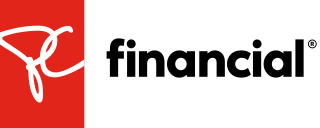
President's Choice Financial, commonly shortened to PC Financial, is the financial service brand of the Canadian supermarket chain Loblaw Companies.

Visa Debit is a major brand of debit card issued by Visa in many countries around the world. Numerous banks and financial institutions issue Visa Debit cards to their customers for access to their bank accounts. In many countries the Visa Debit functionality is often incorporated on the same plastic card that allows access to ATM and any domestic networks like EFTPOS or Interac.
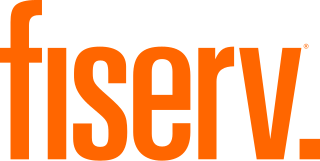
Fiserv, Inc. is an American multinational company headquartered in Brookfield, Wisconsin, that provides financial technology services to clients across the financial services sector, including banks, thrifts, credit unions, securities broker dealers, mortgage, insurance, leasing and finance companies, and retailers.
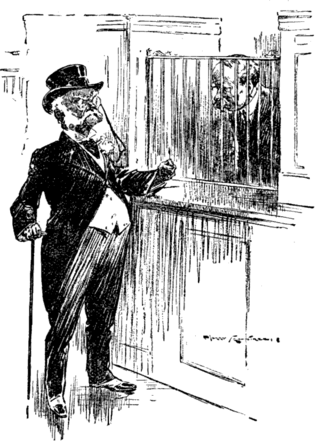
An overdraft occurs when something is withdrawn in excess of what is in a current account. For financial systems, this can be funds in a bank account. In these situations the account is said to be "overdrawn". In the economic system, if there is a prior agreement with the account provider for an overdraft, and the amount overdrawn is within the authorized overdraft limit, then interest is normally charged at the agreed rate. If the negative balance exceeds the agreed terms, then additional fees may be charged and higher interest rates may apply.

Payment cards are part of a payment system issued by financial institutions, such as a bank, to a customer that enables its owner to access the funds in the customer's designated bank accounts, or through a credit account and make payments by electronic transfer with a payment terminal and access automated teller machines (ATMs). Such cards are known by a variety of names, including bank cards, ATM cards, client cards, key cards or cash cards.

An ATM card is a dedicated payment card card issued by a financial institution which enables a customer to access their financial accounts via its and others' automated teller machines (ATMs) and, in some countries, to make approved point of purchase retail transactions. ATM cards are not credit cards or debit cards, however most credit and debit cards can also act as ATM cards and that is the most common way that banks issue cards since the 2010s.
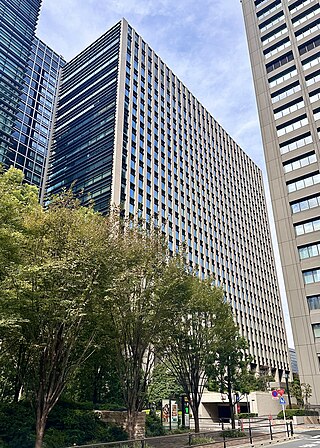
Sony Bank, Inc. (ソニー銀行株式会社) is a Japanese commercial bank established in April 2001. It operates as a direct bank and has no physical branches or ATMs. It is one of the largest online banks in Japan and a subsidiary of Sony Financial Holdings, the financial business unit of the multinational conglomerate Sony Group Corporation. Its main business is offering online banking with foreign currency deposits, investment trusts, and home loans.
NetBank, formerly named Atlanta Internet Bank (1996) and Net.B@nk (1998), was a direct bank.

SMS banking' is a form of mobile banking. It is a facility used by some banks or other financial institutions to send messages to customers' mobile phones using SMS messaging, or a service provided by them which enables customers to perform some financial transactions using SMS.
Discover Financial Services is an American financial services company that owns and operates Discover Bank, an online bank that offers checking and savings accounts, personal loans, home equity loans, student loans and credit cards. It also owns and operates the Discover and Pulse networks, and owns Diners Club International. Discover Card is the third largest credit card brand in the United States, when measured by cards in force, with nearly 50 million cardholders. Discover is currently headquartered in the Chicago suburb of Riverwoods, Illinois.

A credit card is a payment card, usually issued by a bank, allowing its users to purchase goods or services or withdraw cash on credit. Using the card thus accrues debt that has to be repaid later. Credit cards are one of the most widely used forms of payment across the world.

Westpac Banking Corporation, known simply as Westpac, is an Australian multinational banking and financial services company headquartered at Westpac Place in Sydney, New South Wales.

Banking in Germany is a highly leveraged industry, as its average leverage ratio as of 11 October 2008 is 52 to 1 ; its short-term liabilities are equal to 60% of the German GDP or 167% of its national debt.

ING Bank (Australia) Limited is a direct bank operating in Australia. It is a wholly owned subsidiary of the multinational Dutch bank, ING Group. ING in Australia holds an Australian banking licence as a foreign subsidiary company.
Chime Financial, Inc. is a San Francisco–based financial technology company that partners with regional banks to provide certain fee-free mobile banking services. The company offers early access to paychecks, negative account balances without overdraft fees, high-yield savings accounts, peer-to-peer payments, and an interest-free secured credit card. Chime earns the majority of its revenue from the collection of interchange fees on debit card transactions.













